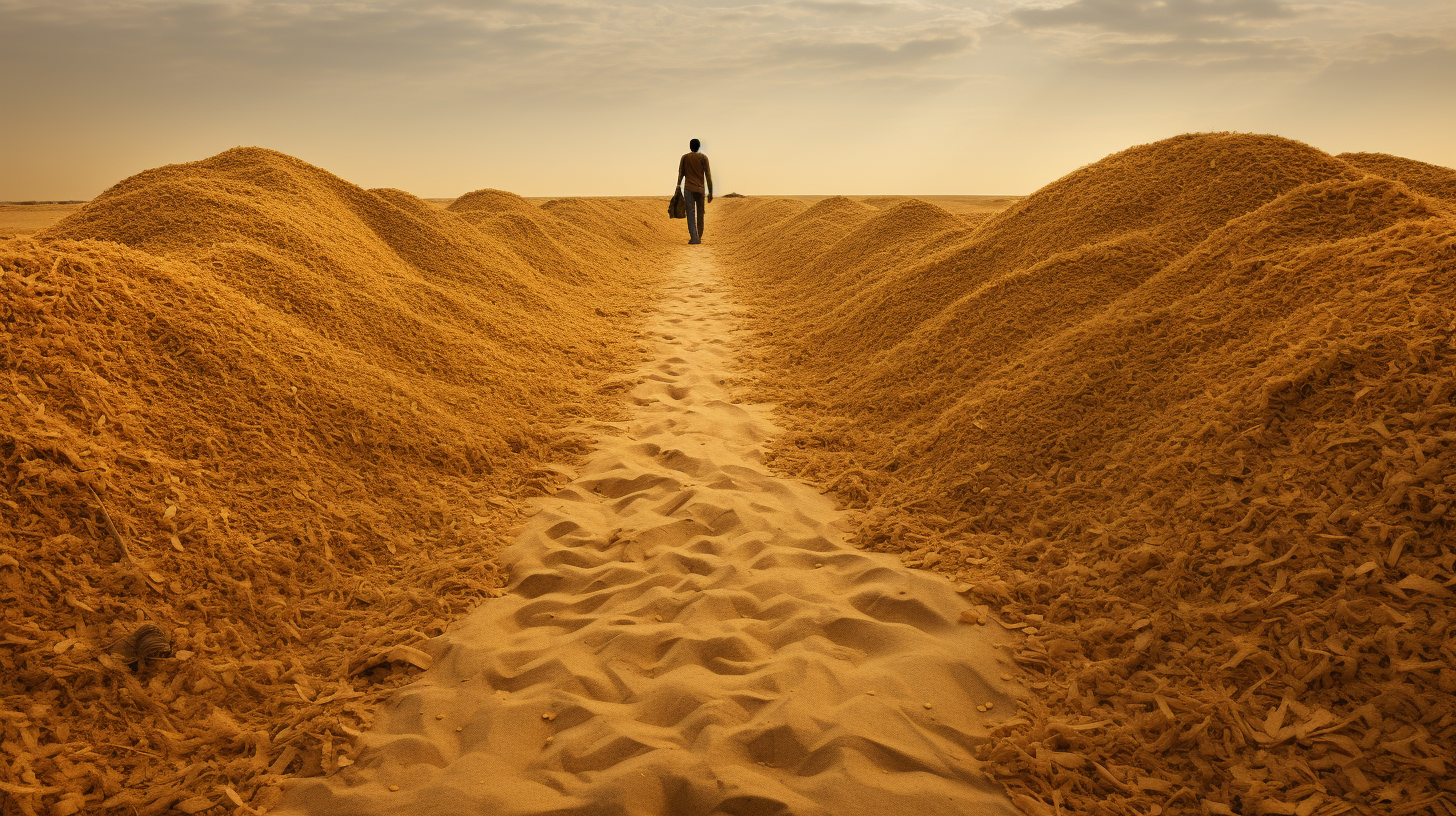In a landscape where the arid land stretches as far as the eye can see, grains of sand have become the relentless harvest, where once wheat and corn swayed gracefully under the sun’s nurturing gaze. This wasteland, the legacy of human indiscretion, bears witness to the new agrarian crisis that binds the hands of our farmers tighter than any rope. They call it the ‘Harvest of Sand,’ a term coated in the bitter silica of irony.
Once the Breadbasket, Now the Sand Shaker
Digging into this crisis, we uncover layers upon layers of soil—rather, the lack thereof. The poignant symbolism of a ‘breadbasket’ that now serves as a ‘sand shaker’ is not lost on us. The verdant fields that cradled the seeds of life have been systematically suffocated under the fierce stranglehold of over-irrigation and irresponsible cultivation. The reckless abandon of intensive farming has left an indelible scar upon the earth—a stark reminder of what once was.
‘Where have all the flowers gone?’ is no longer just a poignant query in a folk song; it’s the genuine lamentation at the heart of the agrarian world. A lament that echoes alongside the deafening silence of a desolate landscape.
Scorched Earth and Lost Livelihoods
Our narrative takes a turn when we scrutinize the lives entangled in this environmental quagmire. With each grain of sand that slips through their fingers, farmers face the somber reality that the soil which their forefathers toiled over is quickly turning into a barren stretch of hopelessness. As the dust settles on abandoned machinery, the ‘scorched earth’ becomes an all-too-real embodiment of defeat in the face of climatic onslaught.
“Our tractors are no match for the march of the dunes,” wisps an old farmer, voice cracking over the whisper of starving winds. “Our legacy is in tatters, just like the topsoil.”
Forgotten Breath of the Green Revolution
The Green Revolution’s breath, which once inflated the sagging lungs of a famished populace, is all but forgotten as we stand knee-deep in the sands of our own creation. Its promises of bountiful yields and agricultural advance now haunt us like ghosts, their whispers a siren call leading us inevitably to our ruin. It begs the question: at what cost progress?
“We fed the world, but starved our earth,” another farmer declares with a hollow gaze toward the encroaching desert. “Now, the harvests are just memories, trapped beneath the dunes.”
Silenced in the Sands of Change
The plight of the natural world—and its keepers—is one that silences our collective conscience. As the relentless tide of desert-like conditions washes over fertile lands, even the hardiest of flora and fauna have surrendered. The stubborn perseverance of nature, once a reliable constant, has been muted; stifled by the sprawling beige of a once-verdant paradise.
‘Maybe there is a beauty in this desolation,’ muses a poet who finds a muse in the sterility. ‘But the only bloom that grows here is sorrow.’
Sparking a Glimmer of Reflection
Though the pages of our publication cannot offer the solace of hope, for it is a luxury our crafted dystopian narrative asserts is long past, we can indeed offer a reflection—a mirror to show what might become if the winds of change are not redirected posthaste. ‘Harvest of Sand’ serves to ignite a conversation on the impermanence of human achievement in the face of environmental neglect.
Engage with us in this contemplative foray, not to find encouragement within these somber tales, but to glean wisdom from the agrarian elegy we’ve composed. A desperate missive from the not too distant future, urging for change in a world teetering on the brink of ecological bankruptcy.
